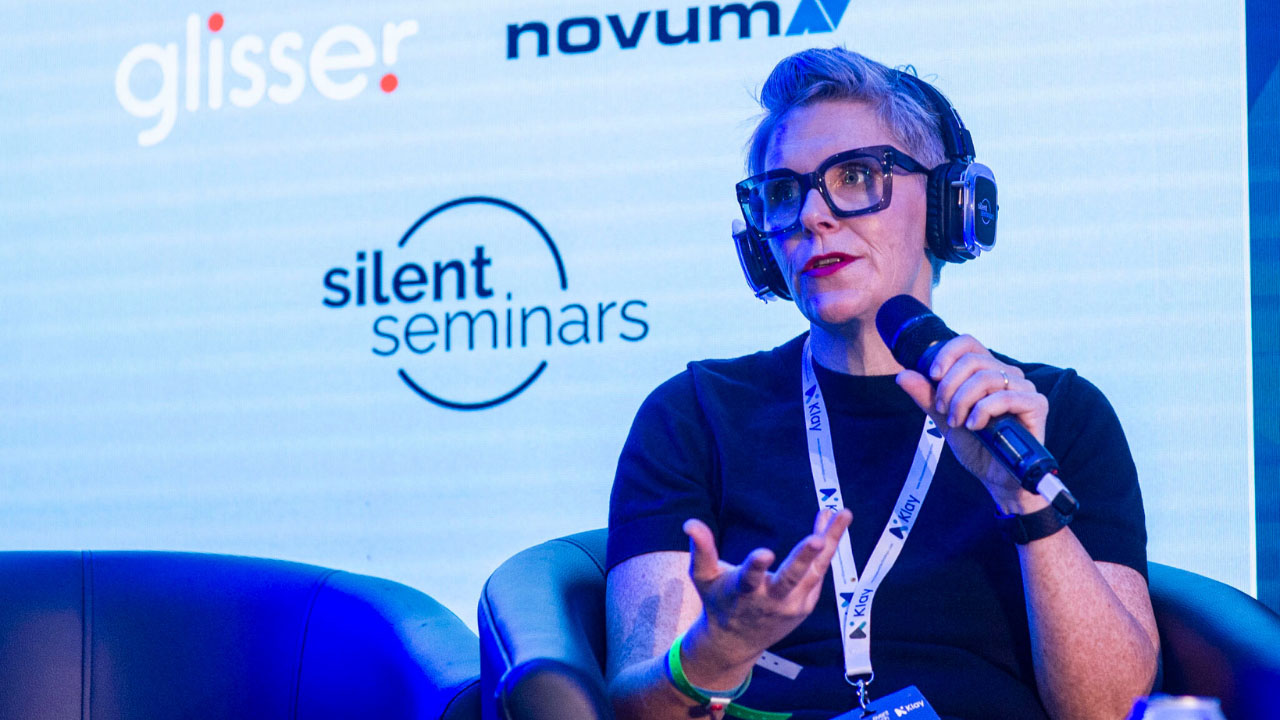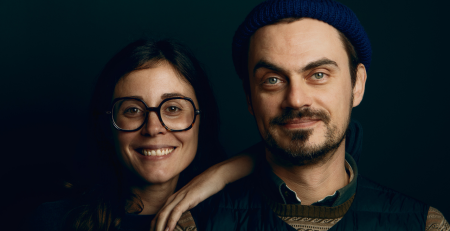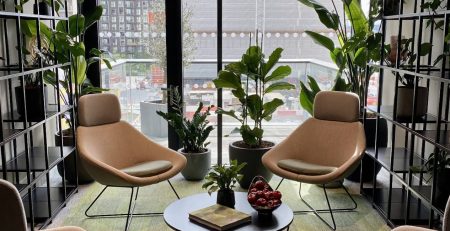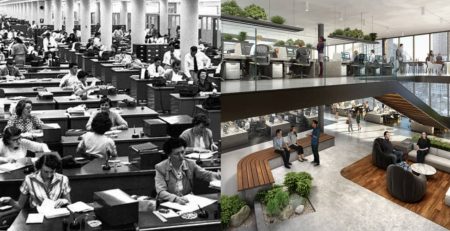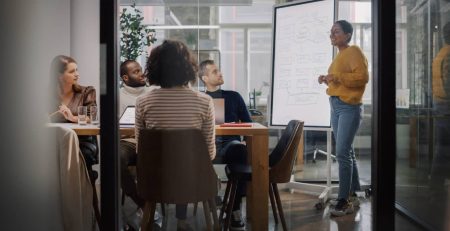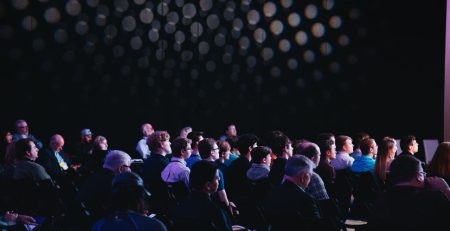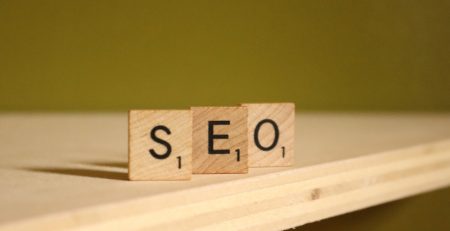Spotlight on Orla Pearson: Pioneering Inclusion and Innovation in the Event Industry
Orla Pearson is an accomplished entrepreneur and an expert in the field of closed captioning. She is the co-founder of MyClearText, which provides high-quality, real-time captioning at events and AccessLOOP, a business that offers a tool for adding live-captioning and sign-language to virtual, in-person and streamed events.
With a captioning career spanning over two decades, Orla has been at the forefront of developing innovative solutions to address the need for inclusivity in live and online events.
Here, Orla shares her career highlights, the challenges she’s faced as a woman in tech, and her journey to founding these two businesses.
How did you find yourself in the field of captioning?
I fell into it. I was a competitive swimmer in my teens and found myself faced with the choice to keep going or start a different life. I wasn’t sure what to do and so did a secretarial course to keep my parents off my back. The course for captioning was in the same college and they said most of these jobs were in London, which appealed to me, so off I went. (I did nearly end up as an air traffic controller but that’s another story!)
I ended up being top of the class, it just made sense to me. I then came to London to work as a courtroom stenographer, but I didn’t like it.
I rang the BBC and asked for a job and went on to spend 15 years there really honing my skills as a captioner but also as a manager and producer. We developed live captioning for the UK as it was in its infancy when I joined. It was a great time to be there and all the skills I learned at the BBC I use every day in my own companies.
It was at the BBC I learned what the audience for captions needs. The voice of the viewer has been implanted in my thinking since. I wanted to bring that excellence and user-focus into my work, along with technical expertise which every business must have now. Those three things are still at the heart of both businesses ten years on.
What are captions? And why are they so important?
Live captions are what you see on television or YouTube: real-time text reflecting what’s being said.
There are many audiences that use live captions, including deaf people. There are 11 million people in the UK with some form of hearing loss, of that number 100,000 use Sign Language which leaves the rest using lip reading, hearing aids, or cochlear implants to aid their communication, but nearly all of them use captioning to access the spoken word.
Other users include neurodiverse people, with dyslexia, dyspraxia, Autism, Asperger’s and auditory processing disorders, who use live captioning to help them engage with the spoken word.
And of course, people for whom English is a second language.
What prompted you to set up MyClearText in 2013?
My life was changing at home and at work. My department at the BBC became BBC Broadcast and then RedBeeMedia, leading to a round of redundancies and I surprised myself by taking one. I had three young children at home, and I worked freelance for RedBeeMedia, which suited family life. I also started to work freelance onsite for events and directly for deaf people.
I was surprised at how basic the service was for deaf people and how little tech was involved in events. The quality of some of the captioning was surprising. I thought this could be so much better than it is and started MyClearText with the vision of providing high-quality captions for events to audiences and directly to deaf people, looking and trialling new tech, and using it in innovative ways.
I also felt as a freelancer, nobody looked after the captioner or the client. At MyClearText we’re with the client from their enquiry or booking, right through to the delivery of live captions. Helping them understand what they want to achieve, what options are technically possible with their set up, and then making sure the captioner has what they need to deliver the highest quality captions.
It’s worked well, and the market responded immediately. We are a busy company, delivering 70 hours of captioning in a day on a busy week. We can also provide post-production services, British Sign Language, and multi-language live captions.
How did AccessLOOP grow out of your work with MyClearText?
During the pandemic the world immediately went virtual, while that benefitted some people, others were cut off and excluded, including those who needed captioning and sign language to understand spoken content.
AI captions were available on some platforms, but the quality was so hit and miss it’s not sufficient for some people with hearing loss. New event platforms were springing up it seemed daily, and none were thinking about accessibility. As a captioning company we were having to create hacks around systems. So, we decided to create one to solve our own problems, with our expertise we knew we were the right people to develop a solution for the technicians and event producers, the captioners and sign language interpreters, and the audience.
What does AccessLOOP provide?
To add live captions, sign language, and multi-language captions requires a few pieces of hardware and software, and a technician to monitor and facilitate changeovers in some cases. It can be expensive, with many points of failure and the end results for the audience can be poor, with producers not knowing what the audience needs.
We created a browser-based solution, through which you can set up a project and add captioners and interpreters to your event stream in minutes. It’s simple to use, with plenty of features to make your stream accessible and professional. You can also produce over 100 multi-language streams with real-time translated captions with one captioner. We also feature AI captions for those who choose to use them.
Anyone can use AccessLOOP, you don’t have to be a technician, so it can be used by people with a simple set up but also for those with complex events to run.
What have been your career highlights to date?
Captioning 9/11 as it happened on the BBC News, was one. Whilst it was an historic and horrific day, it felt like being part of history and we were serving an audience reliant on our captions to understand this world-changing event. Similarly, when Princess Diana died.
Setting up AccessLOOP, has been a challenging and interesting move into software development.
We won five awards between both companies at Event Tech Live this year and that was a huge highlight after a lot of hard work and investments that people in our industry saw and believed in what we were doing. Hopefully there are many more highlights to come!
As a woman in tech, have there been any barriers to your success?
As I read this question I’m laughing. Barriers are – being a woman! People tend to underestimate you as a woman in a male environment, I really don’t mind that as people never see you coming, and you can really surprise them.
I’m someone who loves to learn new things and I don’t pretend to understand what I don’t know and step by step you get there. I really understand people, the market and most of the technical side of things. I’m good at understanding the questions people are really asking, which technical people can miss, so I can be the person answering the right questions in a technical meeting.
My main thing is if I’m not listened to or someone repeats what I say or takes an idea as theirs I call it out immediately, I use humour, but the point is made. I also support other women in the room and if they say something I will point to it or help them be heard, that also works very well.
Why do you think diversity and inclusion came to the forefront during the pandemic?
Working from home for some was difficult, trying to work in busy, noisy homes, where they may not have been able to hear work calls, so the use of captions increased. When virtual events went viral it opened them up to a global audience whose second language might have been English, so captioning in English and other languages supported those audiences’ engagement.
It’s great to see that adding live captioning and other steps towards inclusivity at events is starting to become mainstream.
Are there small changes companies can make?
There are easy things to do to show people you are thinking about inclusivity. Make sure all your video content has captions. Where possible using Image Alt Text on your images, this text helps screen-reading tools describe to visually impaired readers, and it also allows search engines to better crawl and rank your website.
We advise live captioning on any all-hands meetings in companies, this is a very visual way of saying we know people need this adjustment and, even if you don’t need it, it’s still a sign of an inclusive company and hits many audiences.
Be open, ask questions, but don’t put the responsibility on the disabled person to come forward. Do the work. Become informed. Listen.
There are several organisations that can help businesses become more inclusive, such as Business Disability Forum; PurpleSpace; Valuable500.
There is help and support out there. Start with asking questions and really listening, and then respond with a small step, this is a marathon not a sprint and there are no quick fixes.
What’s next for AccessLOOP and MyClearText?
Getting the message out there about both companies. Becoming the go-to companies for provision of access and delivery of access. Taking AccessLOOP to the US, as accessibility is built into their law and is a big market.
More speaking opportunities for me personally and panel sessions. Developing AccessLOOP further to meet all the needs out there, and continuing to grow MyClearText and celebrating our ten-year anniversary this year (2023).
The ultimate goal is to make accessibility mainstream in all events, and we will continue to push that agenda in everything we do.
The Buzz works with MyClearText and AccessLOOP, find out what we’ve done for AccessLOOP here.


